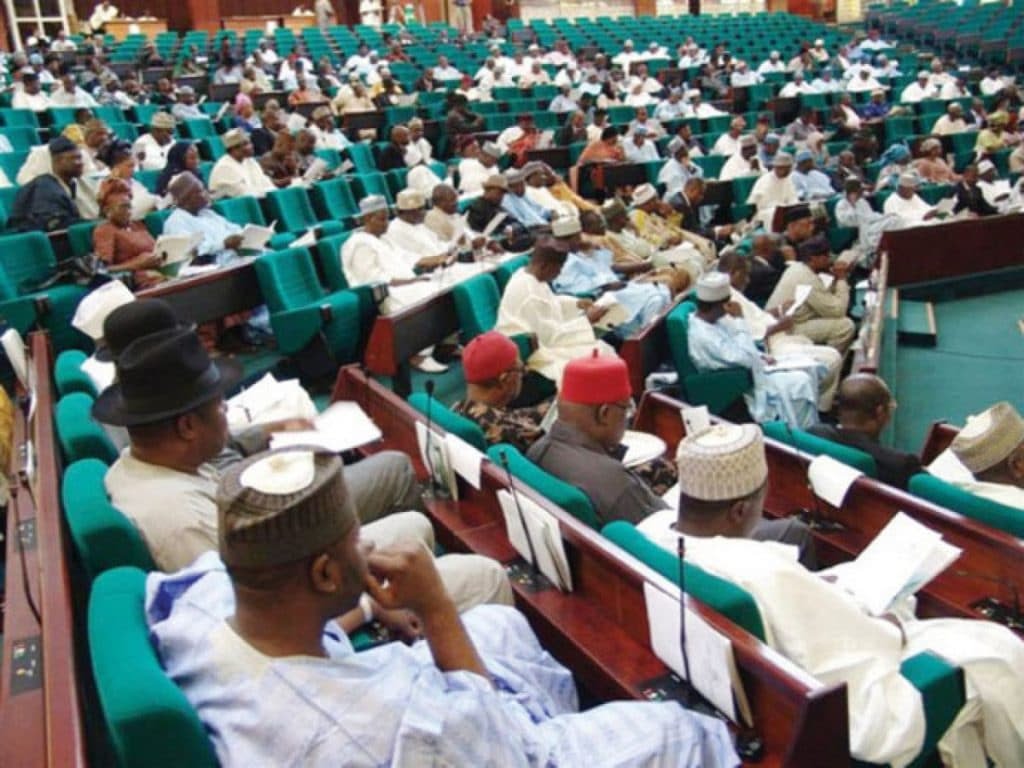The Inspector General of Police, Usman Baba Alkali, said yesterday that the Nigerian Police had no business being in the Contributing Pension Scheme, CPS.
He said like the Nigerian Army and other military agencies, the police want out of the scheme to help better the lives of their retirees.
But the Nigerian Labour Congress, NLC and the Nigerian Pension Commission, PENCOM said police exemption was not feasible.
In his presentation at a public hearing of two pension bills to amend the relevant sections of the Pension Act of 2014 to exit the police from the CPS, in the House of Representatives yesterday, the IGP said the lives of servicing officers, men and retirees of the Force were not any better with the scheme.
One of the bills is “A Bill For An Act To Amend The Pension Reform Act, 2014 To Provide For The Exemption Of The Nigeria Police Force From The Contributory Pension Scheme And For Related Matters.
The other is a ”Bill For An Act To Amend Sections 1(C), 7(2), 8(1), 18, 24 And 99 Of The Pension Reform Act, Cap P50 Lfn 2014 By Providing That A Pensioner Shall Receive At Least 75% Of His Retirement Benefits Immediately Upon Retirement And Criminalise The Undue Delay In The Payment Of Pensions And For Related Matters.”
Represented by Deputy Inspector General of Police, Sanusi Lemu, the IGP said the leadership of the Nigeria Police Force was convinced that the proposed amendment would not only significantly address the age-long challenges associated with the pension administration in the force, but would also be in the overall best interest of the entire members of the force, including those serving and retirees.
In his speech to declare the hearing open, speaker of the House, Femi Gbajabiamila, who was represented by the deputy leader of the House, Peter Akpatason, said the police needed to exit the scheme.
He said: “We cannot feign ignorance of the stress and delay our retires experience before accessing their benefits, after serving the nation for many years. I am optimistic that the amendment this bill seeks to effect on the 2014 Pension Reform Act will provide the needed solution.
“It is the expectation of the House of Representatives that the two bills we are here to deliberate upon will effect the needed critical interventions to improve the welfare of our retirees and enhance the pension industry”
Similarly, sponsor of the first bill, Francis Ejiroghene Waive, from Delta State, said the condition of even the senior officer of the police under the scheme was lamentable.
He said: “Unfortunately, operating under the current pension scheme has been both unpalatable and regrettable for the retirees of the Nigerian Police Force.
”For example, the highest retirement benefit of a Deputy Superintendent of Police under this obnoxious pension scheme is N2.5m and that of Assistant Superintendent of Police is N1.5m, while their equivalent in Army (captain) and DSS are paid N12.8m and N10.3m respectively. ”Upon retirement, the monthly take-home of a retired Police DSP is just N31,600, while that of a Captain, an equivalent in the Army, is N180,000.
”While for a Police Inspector is N15,000, a Warrant Officer, the Army equivalent to a Police Inspector takes home N120,000. Ladies and gentlemen, what is good for the goose is good for the gander.
“In these days of insecurity across our nation, exempting the police from the obnoxious Contributory Pension Scheme could just be the magic to motivate officers and men of the force to go the extra mile and save our country.
”The recent situation where the Nigeria Police Force couldn’t get enough applicants from certain parts of the country should alert us of the dangerous situation.
“There is no reason each request should not be treated on its merits. Exiting the police should not affect a scheme that is supposed to cater for several millions of Nigerians or was the scheme created just for the Nigeria Police? Or is there something the managers of the scheme are not telling us?
“The corruption in the pension scheme before the advent of the contributory scheme has also been mentioned. However, it is public knowledge that the contributory scheme also has same corruption with unbearable delays and payment failures.
”In fact, prior to the scheme, the take-home of police pensioners was better, except for the general challenges with pension in the country at that time. I have also heard arguments that a drastic improvement in salaries paid to members of the police force will automatically result in huge increase in pension benefits,” the lawmaker said.
But in their separate presentations, the Nigeria Labour Congress, NLC, and the Nigeria Pension Commission, PENCOM, opposed the bills to exempt the police.
Represented by its Head of International Relations, at the hearing, Uche Ekwe, NLC said it was not feasible.
“Where will the money to fund the Defined Benefits Scheme for the exempted officers come from? Will it still be funded from the national budget that currently is hardly sufficient to fund other commitments of Government, including healthcare and social security?
“What has changed in the management of Defined Benefits Scheme especially in the light of news arrests and convictions of individuals involved in the mismanagement of pensions?
“This is because exemption of the personnel of the NPF would imply additional financial burden on the Federal Government by way of unsustainable pension obligations. Statistics from the pension industry indicates that the Federal Government would need over N1 trillion to finance the exemption of the police personnel from the CPS.
”This liability is expected to significantly increase with the proposed yearly recruitment of 10,000 personnel into the police force as announced by the Federal Government. The Federal Government is already overburdened with the payment of pensions under the Defined Benefits Scheme as illustrated by the 2022 Appropriation Act, which made a provision under the Service Wide Vote for the sum of N577.3 billion as total allocation for Pension and Gratuities.
“The NLC, therefore, recommends without trepidation, that the issues of inadequacy of retirement benefits in the RSA, which is always posited by the proponents of the exemption of the Nigeria Police, could be sufficiently addressed within the framework of the CPS.
”The NLC accordingly calls on the Government to enhance the salary of the Nigeria Police personnel and restore the payment of gratuity to workers upon their retirement. Incidentally, gratuity has not been abolished by the PRA 2014.
“The NLC notes the objectives of the proposed amendment, which are to provide for definite percentage that a retiree can withdraw from the Retirement Savings Account and to criminalize undue delay in payment of pension.
”Indeed, the NLC identifies with the struggles of the retirees as they pertain to the delay in the payment of benefits after retirement and the inadequacy of the lump sum at retirement.
“Labour does not share the view that the solution to these problems resides in allowing the retiree to withdraw at least 75% of the balance of the RSA upon retirement. This is because that scenario would mean leaving only 25% to be spread over the lifespan of a retiree.
” It is doubtful if the 25% balance in a retiree’s RSA, after deduction of 75% lump sum, would, if spread through the retiree’s expected life span, be adequate to reasonably cater for his livelihood during old age.
”It would result in the depletion of the RSA without regard for the retiree’s continued subsistence, thereby impoverishing retirees. This will defeat the essence of pensions and the objectives of the CPS.
“It is in the light of the foregoing that the NLC maintained the position that the Federal Government should restore the payment of gratuity as well as adequate funding and timely release of accrued pension rights of retirees under the CPS,” the NLC said.
While assuring that the challenges of the police would be resolved, PENCOM DG, Hajiya Aisha Dahir-Umar, said: “The reason the police have always failed to exit is because the police employer (FG) has found out that the challenges the police are facing are all administrative and are surmoutable without exiting the CPS.
”They can be addressed within the framework of the CPS. The government has seen that there is no need to exit a successful scheme, that is why it has continuously rejected to approve it.”








